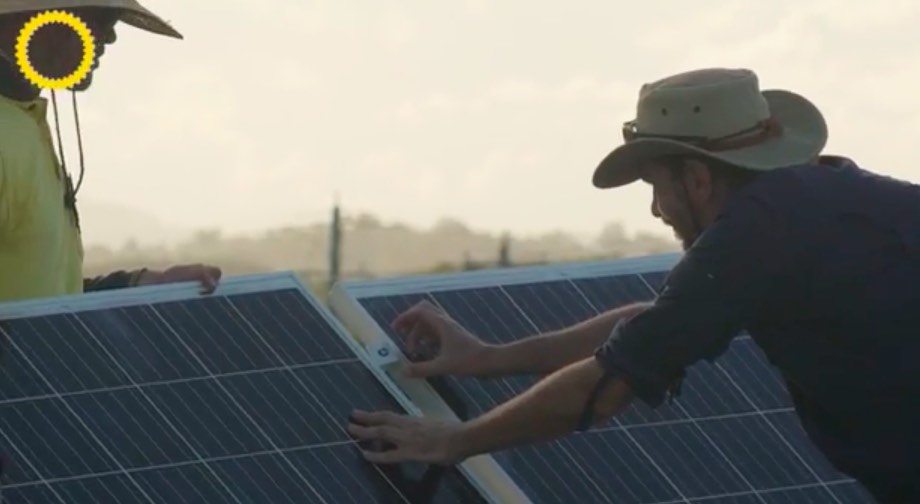
Australia’s first community-based electricity retailer, Enova Energy, has reached major milestone of 1,000 customers, and is already looking to expand its geographic base and push into new areas such as peer to peer trading.
Enova, based in Byron Bay in the northern rivers region of New South Wales, says it has reached its 1,000 customer level several months ahead of target, as it seeks to reach its break-even goal of 4,000 customers within the first two years of operation.
 CEO Steve Harris says the retailer has also attracted a higher number of business customers – 70 so far – which will help revenues, and possibly offset a small impact on margins from rising wholesale prices and high prices for large scale renewable energy certificates.
CEO Steve Harris says the retailer has also attracted a higher number of business customers – 70 so far – which will help revenues, and possibly offset a small impact on margins from rising wholesale prices and high prices for large scale renewable energy certificates.
Harris says there is clearly a groundswell of community interest in alternatives to the big oligopolies, and a fair deal on renewable energy. Nova, which describes itself as a “community owned renewable energy company”, pays 10c/kWh for solar feed in tariffs, more than 50 per cent above most retailers.
“The higher feed in tariff is paying dividends for us. But it’s about community and it’s about environment. Households and businesses are showing they are quite ahppy to switch from their existing provider,” Harris told One Step Off The Grid in an interview.
Harris says Enova is also benefiting from partnerships, such as a solar bulk buy program on the south coast of NSW, and another solar initiative in the ACT.
But one of its strongest successes has been with its partnership with the film The Bentley Effect, which chronicles the community campagin and major victory against coal seam gas development in the northern rivers.
“There is a strong synergy between what was achieed there in the community and what we are trying to achieve,” he says.
Harris says Enova can sign customers anywhere in the Essential Energy network, which covers the bulk of NSW and all its regional and rural areas. Next year it hopes to open its doors to customers in the metropolitan areas covered by the Ausgrid and Endeavour networks.
It is also looking at concepts such as peer-to-peer trading, where the output of one solar household may be sold to a neighbour or another customer, and was being supported by many local councils. Battery storage is also a key technology.
Harris said he was encouraged by his company’s discussions with the new CEO of Essential Energy, John Cleland – a former senior executive with coal company Anglo American.
“He recognises that if they don’t change their ways, they will start to see people leaving the grid. They are keen to engage with the customer base to ssee what they can do to keep people on the grid.”
Indeed, he said it was clear there was a significant push – illustrated by voting patterns in the UK (Brexit) and the US (Trump) – that showed dissatisfaction with the status quo.
“Communities feel they are not well serviced by existing monopolies and the dominant incumbents. People are now starting to put their hands up and say they want something different.
“And here there is a big groundswell of people, particularly around renewable energy, who want to get a better Feed in tariff, who don’t feel they are being well served by the big energy retailers, and want to keep profits in the local community.”
Harris says Enova is also helping customers make big savings on their bills, by identifying rebates that many low income families were unaware they could receive (they make up one quarter of their customer base) and by encouraging them to tap into government incentives to install energy efficient appliances.
“When you call us you speak to a local – and we know what’s happening within the energy sector. Encouraging and assisting everyone to get better educated about electricity usage so that they can reduce their consumption and reduce their power bills is an important part of what we do.”
Fifty per cent of Enova profits go to its not-for-profit arm to invest in education and social projects to encourage all consumers to joint the “renewable energy revolution.”
Giles Parkinson is founder and editor of One Step Off The Grid, and also edits and founded Renew Economy and The Driven. He has been a journalist for 35 years and is a former business and deputy editor of the Australian Financial Review.

